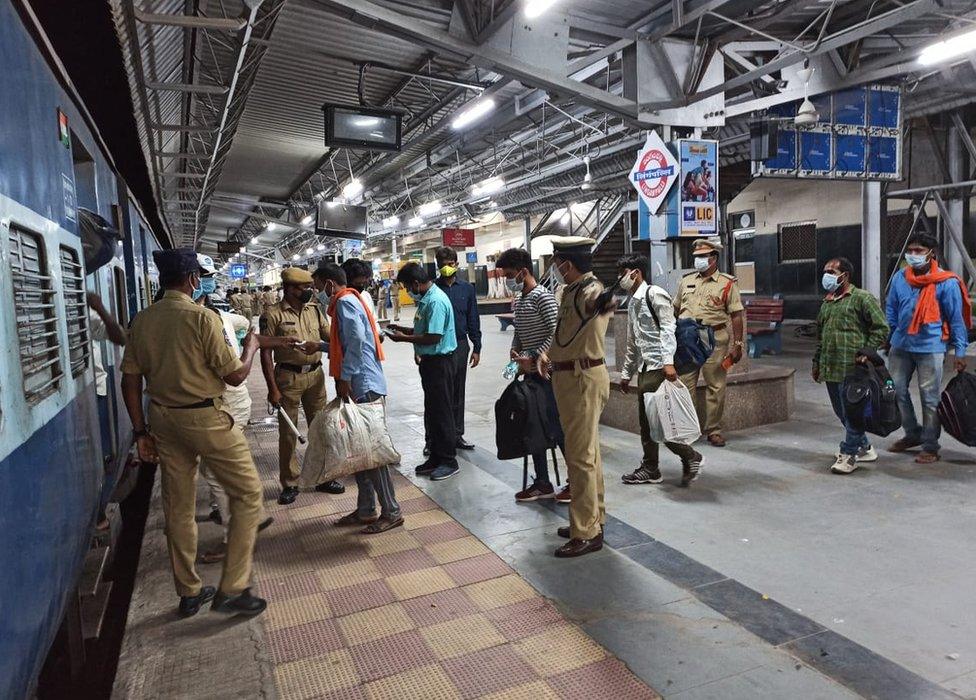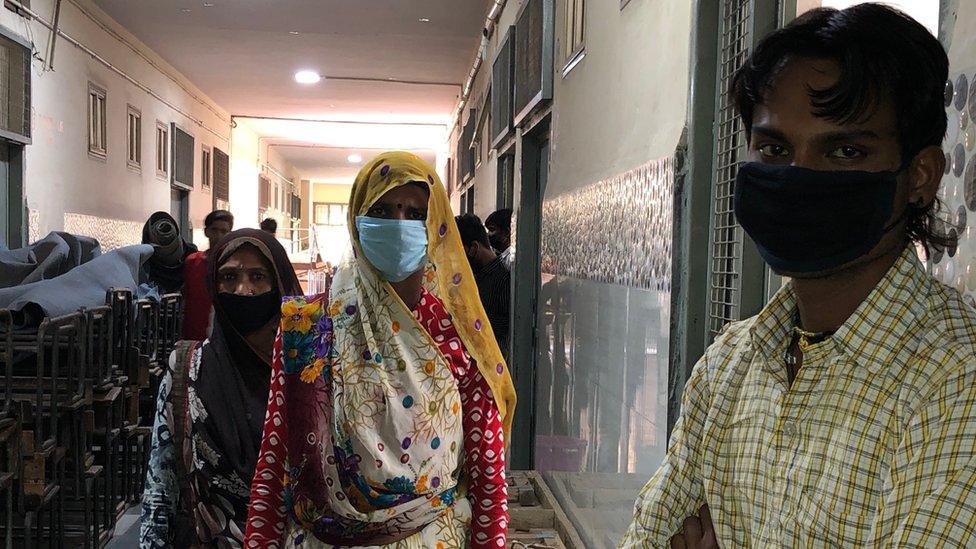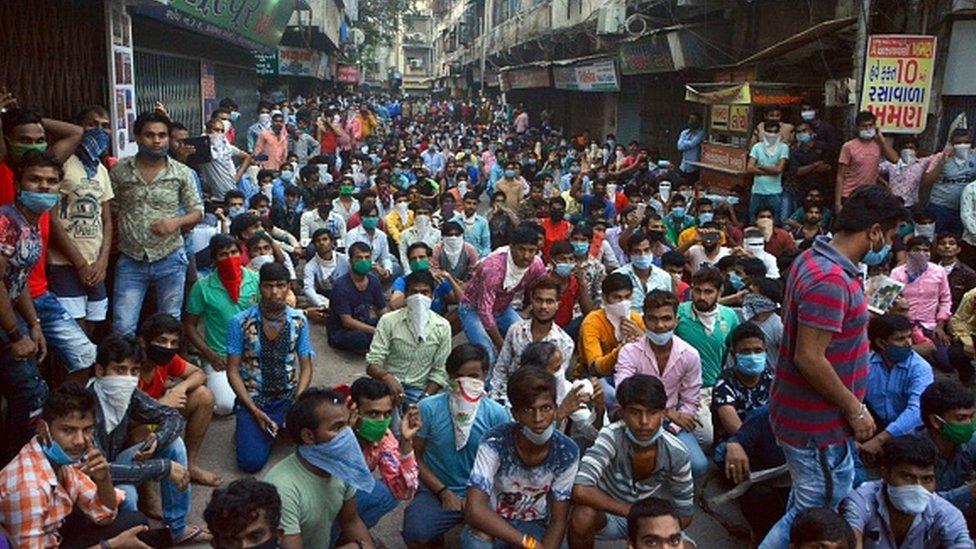India coronavirus lockdown: Official denies asking migrants to pay train fares home
- Published

Many migrants are struggling to pay the fare
India's government has denied it wanted migrants seeking to return to their home states during the coronavirus lockdown to pay their own train fares.
A top ministry official said it was not the intention, following an outcry.
Millions of daily-wage earners were stranded with no means of income after India went into lockdown on 24 March to curb the spread of coronavirus.
Some tickets can cost about 800 rupees ($11;£9). A daily-wage earner typically makes between 200 and 600 rupees a day.
Government officials initially defended the move, saying it was necessary to ensure that only those who were "really stranded" would use the train services.
Railway Board Chairman VK Yadav told a local newspaper that making the service free would make it difficult to screen people, and that the service was only intended for migrant workers and stranded students.
According to a government circular on Friday, local officials were to "collect the ticket fare and hand over the total amount to the railways", India's NDTV, external reported.
Opposition party politicians and civil society members decried it as "inhuman" to expect daily-wage labourers who have not had an income in months, to buy their own tickets, with the main opposition Congress party offering to pay the fares.
A statement attributed to the party president Sonia Gandhi said the Congress would make arrangements to pay the fares as a gesture of "solidarity".
But on Monday, Health Ministry Joint Secretary Lav Agarwal told reporters the government "never asked states to charge money from the stranded labourers", instead asking them to split the cost between themselves and the train operators, NDTV reported.

You may also be interested in...
Mumbai: Frantic migrants throng Bandra station as India extends lockdown

Thousands of migrants fled to their home villages on foot when the lockdown was announced, but many others are still stranded.
Aajeevika Bureau, a non-profit group that works with migrant communities, said many of them were simply unable to pay a fare to get home.
It said that in some cases, the cost of a ticket was upwards of 800 (£9; $11) rupees, with some routes asking migrants to also pay a "surcharge".
Meanwhile, the Stranded Workers Action Network (Swan), which has been operating during the lockdown, has compiled a report based on its interactions with workers, and has said that 50% of them only had rations left for less than a day.
Other findings include the fact that almost half of those who have called them have no food or money and around 80% of them had not received any sort of income since the lockdown began.
This includes those who work in factories and other small industries with many employers either saying they don't have the funds to pay wages, or simply disappearing altogether.
India's informal workers are the backbone of the big city economy, building houses, cooking food, serving in eateries, delivering takeaways, cutting hair in salons, making cars, plumbing toilets and delivering newspapers, among other things.
Most of the estimated 100 million of them live in squalid conditions.
Authorities say the lockdown has been key to saving lives, but critics have said that the lack of planning has hit the country's poorest and most vulnerable citizens hard.

A SIMPLE GUIDE: How do I protect myself?
AVOIDING CONTACT: The rules on self-isolation and exercise
HOPE AND LOSS: Your coronavirus stories
VIDEO: The 20-second hand wash

- Published22 April 2020

- Published1 May 2020
